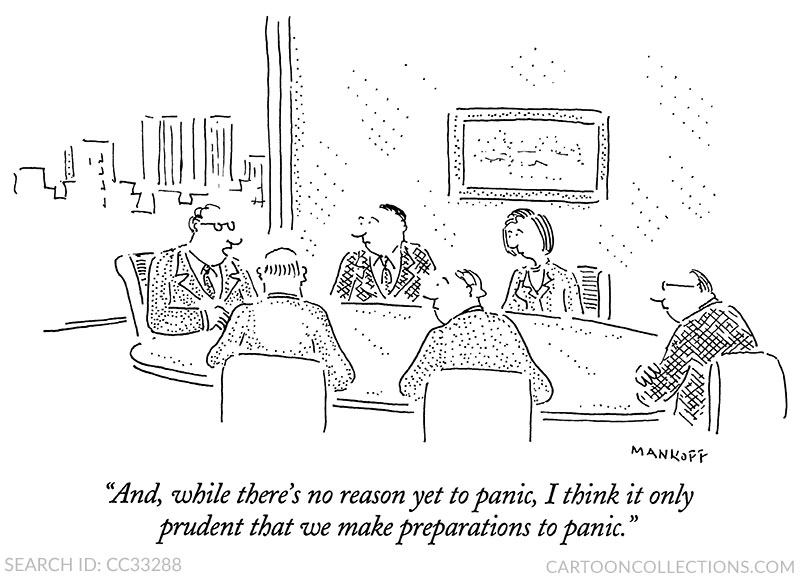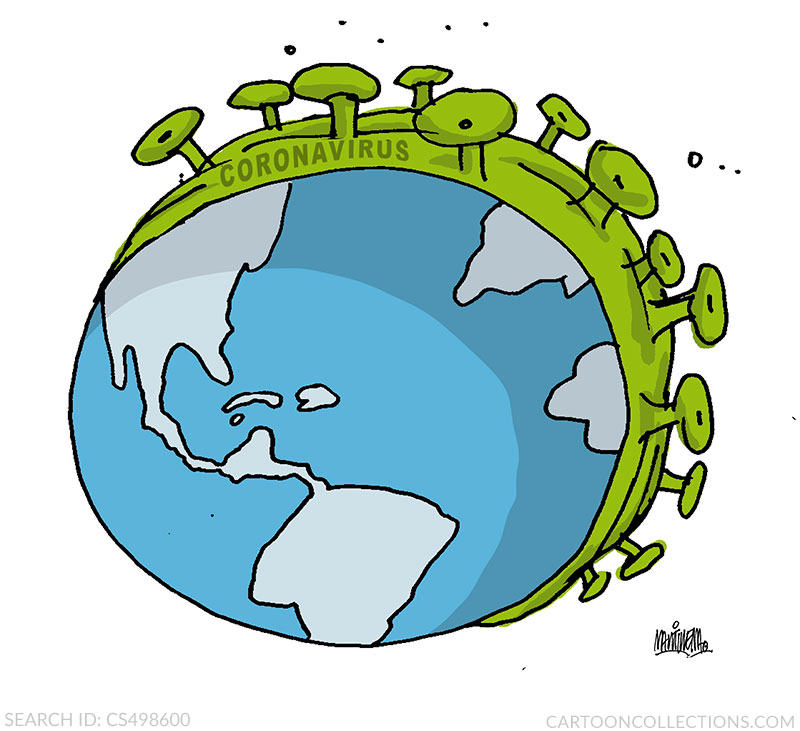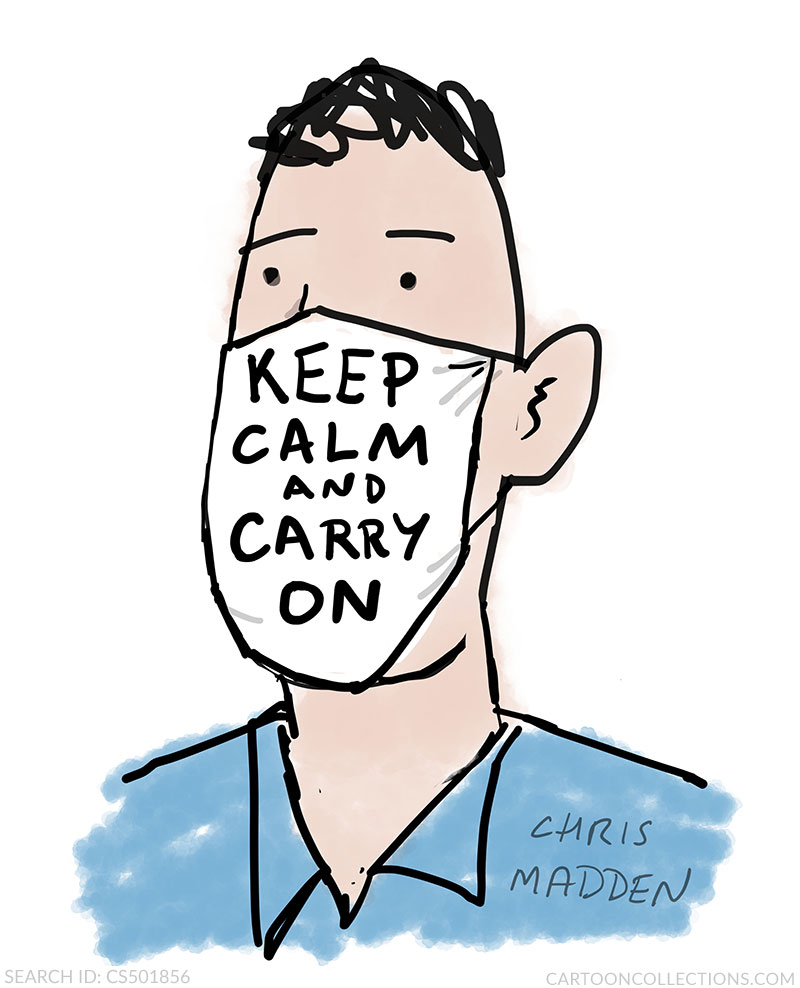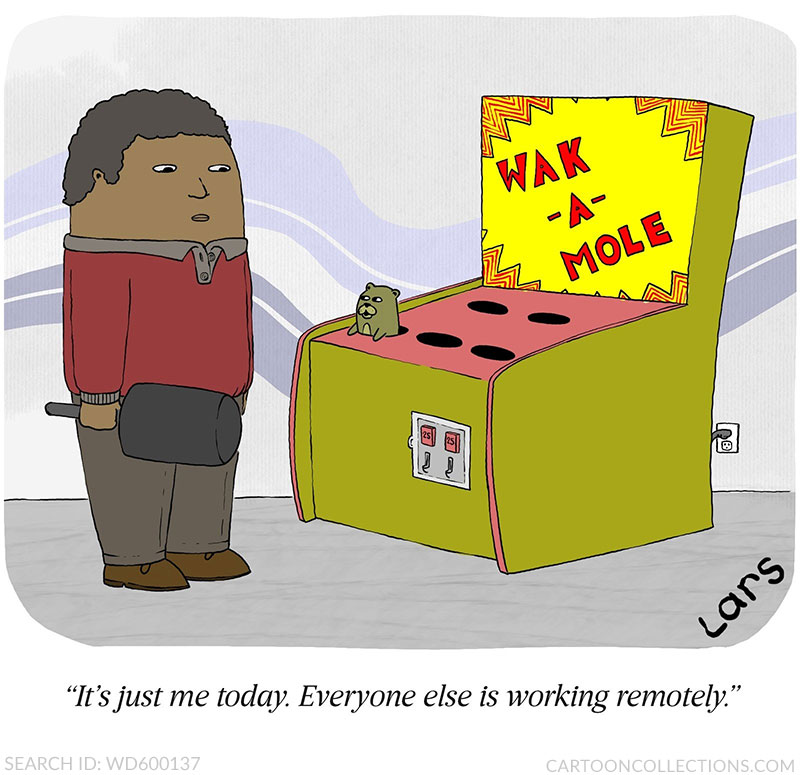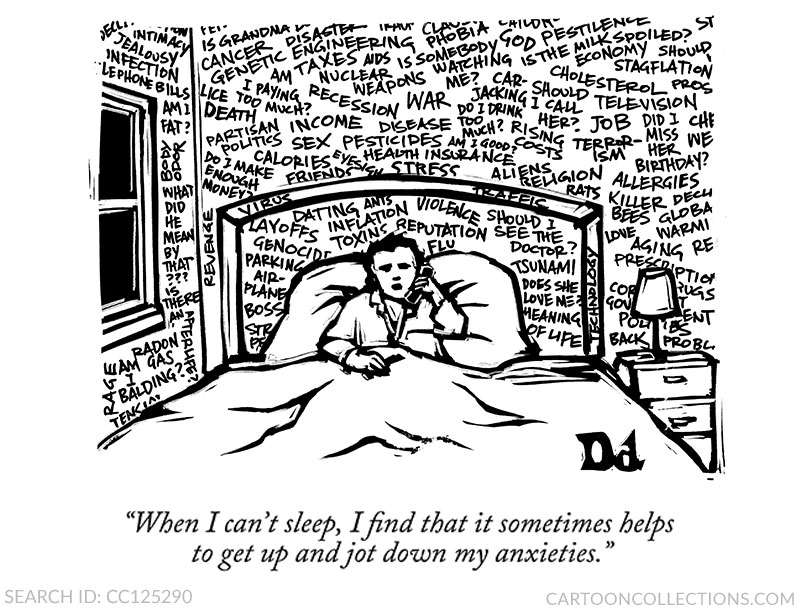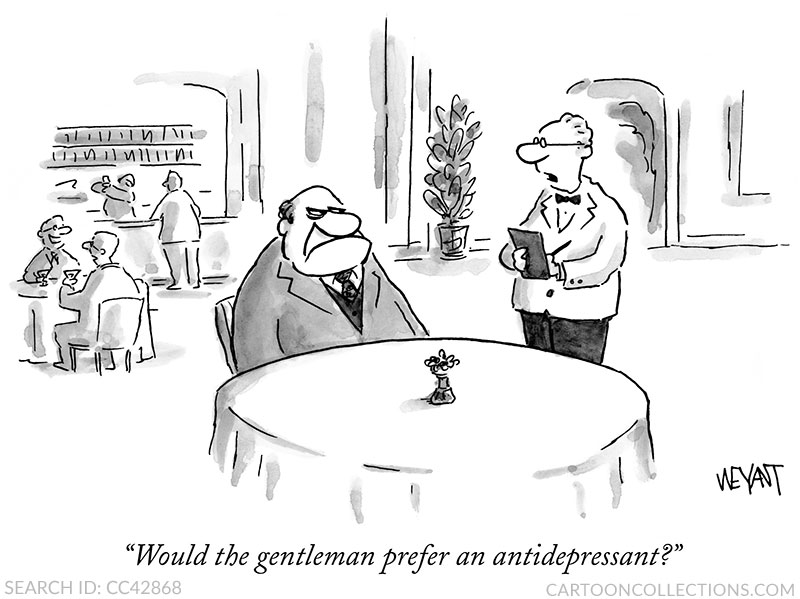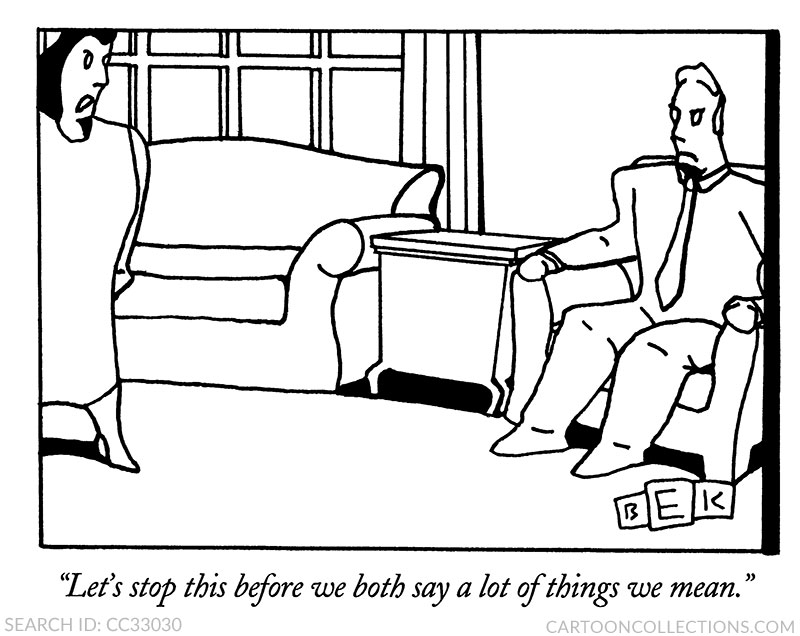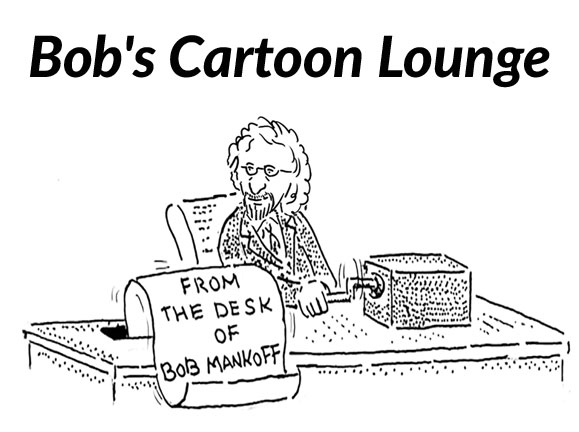 Wow, what a difference a week makes. Last week I wasn’t too worried, and this week I might be worried too much–if that’s possible. Last week concerns about the virus made it easy to get a table at my favorite New York City restaurant, and this week it’s closed.
Wow, what a difference a week makes. Last week I wasn’t too worried, and this week I might be worried too much–if that’s possible. Last week concerns about the virus made it easy to get a table at my favorite New York City restaurant, and this week it’s closed.
I’m not an alarmist by nature. With me, it’s nurture. When I was a baby, my mom would put a mirror up to my mouth to see if I was still breathing and alive. I still do that myself, every once in a while, just to make sure.
In any case, the result is I’m not a keep calm and carry on kind of guy.
The above cartoon pretty much sums up my approach to all problems, real and imagined. But now that the imagined is all too real, what’s a person to do?
Much better, in my opinion, to keep calm and cartoon on—as Chris Madden has done with this wonderfully ironic cartoon of his that shows the power of humor to sum up a complicated, contradictory, paradoxical situation in a simple way.
Maybe Chris wasn’t calm when he did this cartoon, but he was carrying on the great tradition of using humor in a time of crisis to help us cope with adversity and anxiety.
And, when social distancing and self-isolation become mandatory, humor can bring us together even when far apart.
Humor is a universal human experience, but only in recent decades has experimental psychology respected it as an essential, fundamental human behavior and taken humor seriously.
Historically, psychologists had a low view of humor because they were focused on low humor, the kind used to demean or disparage others or inflate one’s own worth and therefore unworthy of study. At that time, psychology dealt primarily with the negative emotions of anger, fear, and depression. But this has changed in recent decades due to the positive psychology movement, a field that examines our psychological strengths, not our weaknesses; what we do well and what makes us well and resilient. Research shows that humor can be used to make ourselves and others feel good, gain insight, combat stress, improve health, and make us more creative, communicative, and collaborative.
As one of the positive emotions—like love and joy—humor can counteract negative emotions such as anxiety…
Depression…
And anger.
See, that worked, didn’t it? You don’t feel anxious, depressed, or angry, now do you?
Ok. Humor and Coping Class dismissed. Meanwhile, take two cartoons and call me in the morning.
Wishing you all good humor and good health,
Bob


